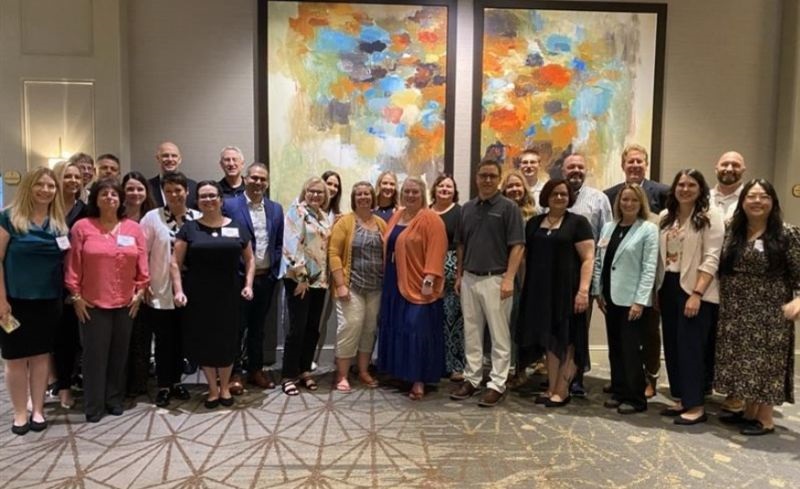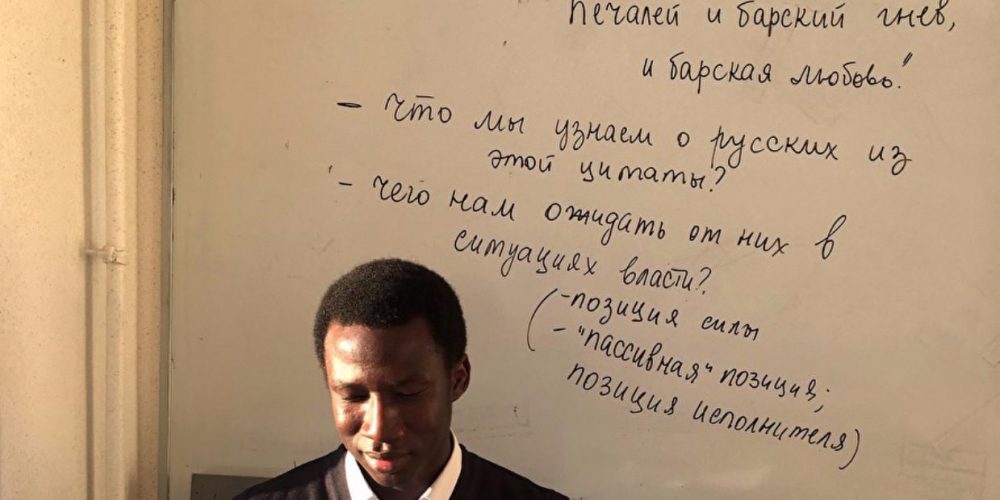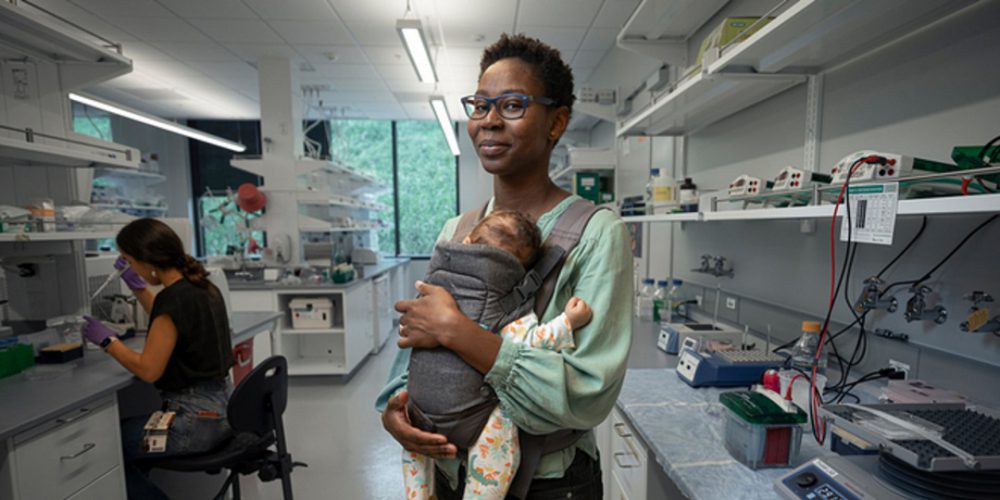Raising kind kids: using one-liners makes parenting a bit easier

“Using clear and concise language effectively communicates to the child what you want them to do in a way that is short and straight to the point, leaving no room for misinterpretation,” says Alisha Simpson-Watt, LCSW, BCBA, the founder of Collaborative ABA Services, LLC.
Parenting one-liners, which are essentially clear, concise, and memorable comments designed to communicate an idea, prove short and sweet repetition really can work when trying to get buy-in from a child.
Does it sound too easy to be true? Experts discussed one-liners and why they can (seriously) make parenting just a little bit easier.
One mother, Nicole, a former elementary teacher with three kids of her own, opened up an interesting and useful discussion on this topic via a TikTok video under the username Raising Kind Kids.

The video has more than 8.3K comments, many with parents sharing their go-to’s. The video was inspired by another mother, who said her favorite parenting one-liner is, “You can be mad, but you can’t be mean.” Nicole also uses the quick sentence.
“One-liners make things so much easier, and more importantly, they work because our kids know what they mean,” Nicole says. “When we say things over and over again, it can feel like, ‘Oh my gosh, why do I have to keep repeating myself?”
Nicole and other parents in the comments shared some of their favorite one-liners.
Some of Nicole’s one-liners include:
“You don’t have to be friends with everyone, but you have to be friendly,” to teach kindness and boundaries.
“I’m sorry is just words. A real apology is a change in behavior,” an incredible 180-degree turn from the forced apologies of many current parents’ childhoods.
“Every family has different rules” as a response to questions like, “Well, how come they can do [XYZ]?”

“Asked and answered,” if a child keeps asking the same question or making the same request (such as fishy crackers when dinner will be ready in five minutes).
“Don’t yuck someone else’s yum,” for situations when a child is commenting on something someone else likes that they don’t, such as a sport, for example.
“Stop means stop. No means no,” as a way to teach consent even in situations where people are playing a game (but one person grows tired of it).
Other parents also shared their favorites. Top comments included:
“We keep surprises, not secrets.”
“All feelings are welcome. All behaviors are not.”
“You don’t have to like them, but you can’t recruit others not to like them.”

“That is not a choice right now.”
Why One-Liners Work in Parenting
Kathryn “Nin” Emery, LPC, a former teacher and school counselor who now practices with Thriveworks, usually speaks with parents and kids about three different brain states people experience from time to time:
Executive state: This state is housed in the prefrontal cortex, which we use for decision-making, emotional regulation, logic, and communication.
Emotion state: This one is part of the limbic system, where the body feels the effects of increasing emotions and leans on memories for information about the current experience.
Survival state: Yup, it’s a state. It’s housed in the brain stem where Emery says, “We or our children are overwhelmed and reacting automatically in the fight/flight/freeze/fawn states.”
It’s hard for kids and parents to regulate in emotional or survival states. That’s where one-liners, developed while in the (calmer) executive state, come in handy.
“The scripts previously formed while in the executive state can give us as adults the time and easy word choices to stay supportive while we navigate our own inner world and calm it down so we can co-regulate with our children,” Emery says. “Done right, it allows their brain to run down neural pathways of problem-solving and self-soothing that are healthy, and through repetition, they are strengthened over time.”
The repetition and short phrases are also a tactic used in children’s programming and books. “Repetition builds fluency, and fluency promotes learning,” Simpson-Watt says.
However, kids of all ages, from toddlers to tweens, can benefit from one-liners.

“One-liners can be effective across various age groups, though the reasoning for their impact differs,” says Dakari Quimby, PhD, a clinical psychologist for HelpGuide Handbook. “Toddlers, for example, like how simple one-liners can be, and it’s beneficial for their developing language skills, providing them with straightforward cues about right and wrong. Teenagers, on the other hand, might appreciate a quick, sharp one-liner that cuts through more complex dialogue, which they might otherwise tune out.”
What if One-Liners Stop Being Effective?
“The spirit of the one-liners is great and has a ton of great uses, but there will be times when your kids will ask for more, which is healthy and should be expected,” says Jamie Buzzelle, a parenting coach.
Sometimes, even the “asked and answered” one-liner may not be sufficient for a child. Some of Buzzelle’s favorite (and still concise) ways to respond to deeply curious and thinking kids are:
“Wow! I love that you are so curious and want to know more. We are doing this because…” “This encourages your child’s curiosity and reinforces that they are trying to understand why you have that particular rule or boundary,” Buzzelle says.
“It makes sense that you want to understand why. I would want to know why if I were you, too.” Buzzelle loves the empathetic nature of this one. “This one might be more effective if the child is upset about the rule or boundary in place, as it will help make them feel seen and heard,” Buzzelle says.
“Can you think of a reason why we might have this rule?” This one helps a child build a foundation for critical thinking. “If they immediately say, ‘I don’t know,’ you can offer up a few ideas to get them started,” Buzzelle says.
Both Simpson-Watt and Emery urge parents to consider the child’s age, development, and cognitive functioning.
“Toddlers benefit from positive action language kept simple and short as they don’t understand the concept of ‘negatives,” Emery says.
One example Emery uses is, “Cats are for touching gently” vs. “Don’t hit the cat.”

“In the latter, toddlers mostly hear and process ‘hit the cat’ and struggle to then use their underdeveloped brains to problem-solve what they should do instead,” Emery adds.
Using One-Liners With Older Children
According to Emery, older children’s experience with one-liners can be synonymous with their inner voice.
“Older children are going to be able to take those words you chose to repeat as a parent and play them in their own minds to guide themselves,” Emery says.
Some phrases to try include:
“My voice matters.”
“It’s OK to not be OK.”
“It’s OK for me to ask for help from others.”
But Emery also advises parents against pulling out a few traditional power one-liners like, “Because I said so.”
“We want to keep mutual respect, care, and safety, and the security of the parent-child relationship at the forefront,” Emery says.
By Gilbert Castro | ENC News


































